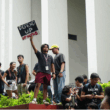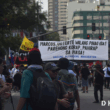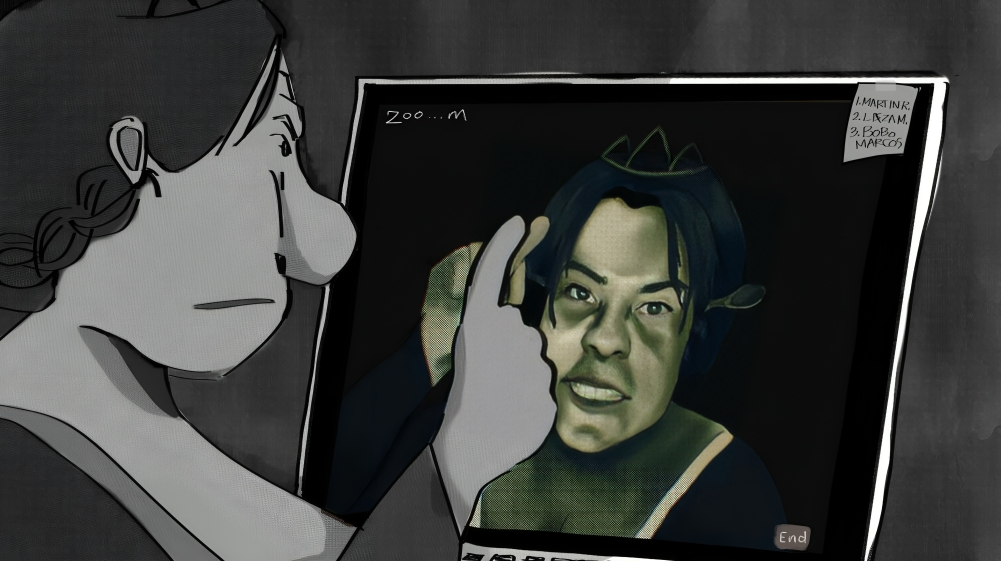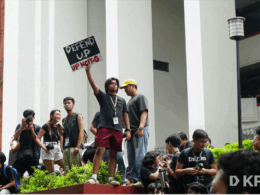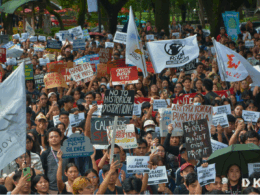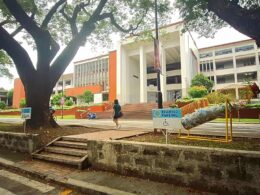Once upon a time in the Pearl Isles, two houses with histories as controversial as their reputations forged an alliance that promised unity and prosperity.
The House of Marcos and the House of Duterte joined hands to form the “UniTeam,” a banner under which President Ferdinand Marcos Jr. and Vice President Sara Duterte ascended to power.
But like any fairytale spun too neatly, cracks soon emerged in the story.
The Marcoses, known for their gilded history of extravagance and plunder, brandished themselves as the visionaries steering the Pearl Isles toward a brighter future. Meanwhile, the Dutertes, with their flair for iron-fisted rule and incendiary rhetoric, offered promises of discipline and national security.
Yet, as the UniTeam took its seat of power, it became clear that this tale was more cautionary than inspiring.
Vice President Duterte, soon dubbed the “Wicked Witch of the South” by her critics, harbored ambitions beyond the Department of Education, which she reluctantly accepted. Her dreams of commanding the realm of defense were thwarted, a slight she did not easily forget.
Despite her high rank, Duterte’s actions were marred by controversy. Allegations of corruption surrounding her confidential funds, including a jaw-dropping P125 million spent in just 11 days, sparked public outrage.
The ghosts of Mary Grace Piattos and Kokoy Villamin—names etched onto dubious receipts—haunted legislative halls as lawmakers offered rewards for any information about these mysterious figures.
In the growing rift between the Marcos and Duterte camps, differences in foreign policy served as a battleground. Duterte favored cozying up to the East (China), while Marcos leaned, albeit indecisively, toward traditional allies in the West.
Their discord only deepened as accusations flew: Duterte threatened retribution “from the grave” against Marcos and his allies, while Rodrigo Duterte, Sara’s father, accused Marcos of substance abuse, an allegation swiftly met with claims that Rodrigo himself had a fentanyl problem.
The fallout reached a crescendo when Duterte resigned from her party and her position in the Department of Education.
What followed was a spectacle of political theater. Public statements grew increasingly unhinged, with Duterte fantasizing about decapitating Marcos and tossing his father’s remains into the sea. This drama culminated in an impeachment process that cast Duterte as the antagonist of her own story.
It’s time to set aside the fairytales and wake up to the stark reality.
While the drama surrounding Vice President Sara Duterte’s impeachment may resemble a storybook conflict filled with intrigue and villains, the implications stretch far beyond the fantastical.
What lies before us is not a tale of morality or redemption but a stark reminder of the deep structural flaws within Philippine politics.
As Congress deliberates Duterte’s fate, the nation must confront an uncomfortable truth. This spectacle is less about justice and more about power, distraction, and the persistent failures of governance.
Beneath the drama, the allegations against Duterte—misuse of public funds, scathing threats, and echoes of authoritarianism—paint a damning portrait.
Yet these charges, while serious, are symptomatic of a larger issue: the erosion of accountability in a system where political vendettas often masquerade as reform.
The Duterte-Marcos fallout, played in public view, exemplifies how Philippine politics weaponizes accountability, using it as a tool to settle scores rather than to strengthen institutions.
This dynamic reflects what political theorist Guillermo O’Donnell terms as “delegative democracy,” where elected officials armed with their electoral mandate govern with minimal checks and balances.
Duterte’s alleged misconduct of spending P125 million in confidential funds in just 11 days, signing off on questionable receipts from figures like the enigmatic Mary Grace Piattos—fits seamlessly into this framework.
But so does the Marcos administration’s calculated pursuit of her impeachment, which coincides suspiciously with mounting criticism of its own governance failures.
These failures are impossible to ignore. Inflation continues to climb, squeezing households as wages fail to catch up with the rising cost of living. Disaster preparedness remains woefully inadequate, leaving communities exposed to typhoons and other natural calamities.
On the other hand, the administration’s foreign policy is marked by equivocation, particularly in addressing Chinese incursions in the South China Sea. These systemic issues demand urgent attention, yet they remain overshadowed by the theatrics of the Duterte impeachment.
The problem, however, runs deeper than any single official or administration.
The dominance of political dynasties, such as the Marcoses and Dutertes, has created a system where power is concentrated in the hands of a few, undermining democratic accountability.
The UniTeam alliance that once united these two families was never about shared governance principles. It was a transactional arrangement, unraveling as soon as conflicting ambitions surfaced. Their fallout serves as a reminder that alliances based on expediency, rather than vision, will inevitably fail the people they claim to serve.
While the impeachment saga may seem like a step toward justice, it risks becoming another chapter in a long history of political theater that distracts from meaningful reform.
Public attention is drawn to the drama, but the underlying systemic issues remain unaddressed. This is not simply about holding Duterte accountable—it is about holding an entire political system to account.
The focus must shift from the spectacle of individual misconduct to the structures that tolerate and perpetuate it.
To break this cycle, the Philippines needs to invest in institutional reform. Strengthening mechanisms of accountability, such as independent audits and legislative oversight, is crucial to curbing the impunity that allows political dynasties to thrive.
Equally important is fostering a political culture that prioritizes public service over personal gain, something that cannot happen without active civic engagement.
The end of Sara Duterte’s impeachment story will not mark the resolution of the Philippines’ problems. It is merely a reflection of the dysfunction that permeates its politics.
To move forward, the nation must reject the allure of political spectacle and confront the deeper issues at play. After all, this is not a fairytale with a neat conclusion—it is a call to action for genuine accountability, reform, and progress.
Only then can the nation write a story worth telling.



